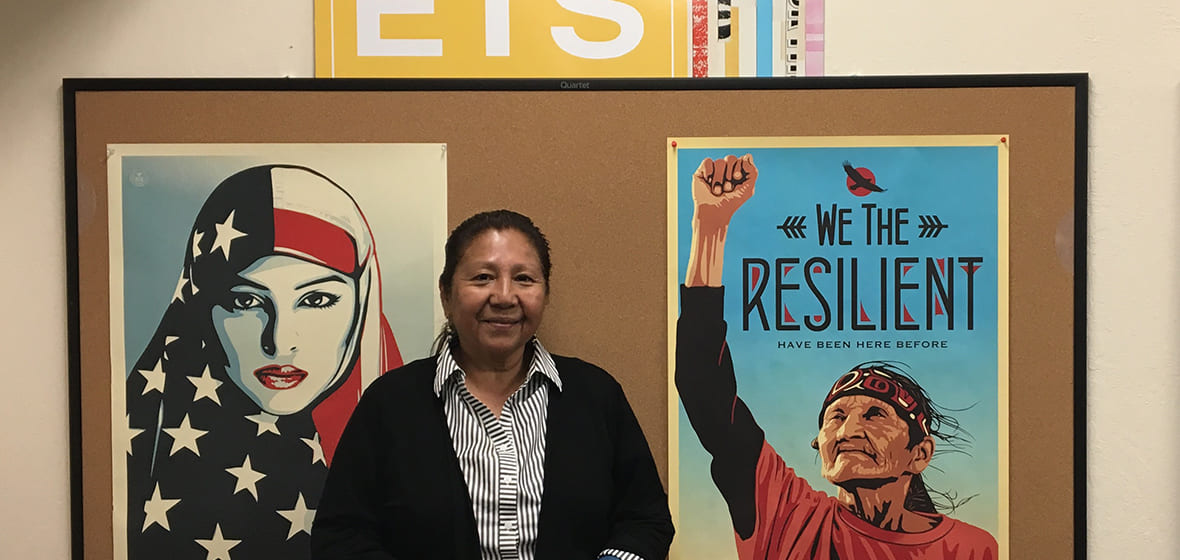The College of Liberal Arts is paving the way to fulfill the University of Nevada Reno's land-grant mission of serving all sectors of society with its new full-time faculty hire in Indigenous studies. Debra Harry is a lecturer in the department of Gender, Race, and Identity and has actually been teaching courses with the department as an adjunct instructor since 2013. Now in her full-time position, Harry hopes to develop a dynamic Indigenous studies program to include a minor and major.
Harry said there is still a lot of work to do in developing new foundational courses for the program and revising some of the current courses to fit within the new program, but hopes the program's minor can be launched fairly soon.
Currently Harry teaches courses on "Native American Cultures," in-class and online, and "Contemporary Indigenous Peoples' Issues." She said it's important to have Indigenous faculty teach these courses because students get a more direct relationship with the subject matter. "When you have Indigenous faculty, then these courses are taught from an Indigenous perspective from people who have direct expertise in the subject matter," Harry said. As a Numu (commonly known as Northern Paiute), Harry is Indigenous to the Northern Nevada region and a member of the Pyramid Lake Paiute Tribe.
Her research in the field of biocolonialism addresses the theft of genetic materials and knowledge from Indigenous peoples and her work has taken her into global governance. She said there are stand-setting processes taking place at the United Nations that address the genetic resources and rights of Indigenous peoples and requires the ongoing engagement of Indigenous peoples. Harry said one of her current projects is to publish a book on this research, which is an adaptation from her dissertation from the University of Auckland where she received her Ph.D. in the faculty of education.
She continues to find ways to, "empower Indigenous peoples to take an active role in meeting the needs of their communities." One way is to mentor Native students at the University and support them on their path to educational success. "Since being here, several Native students have approached me and asked me for my guidance. They're depending on me and need the support that an Indigenous academic can provide them," Harry said.
{{RelatedPrograms}}
The Indigenous studies courses and the soon to be developed program isn't just for Indigenous peoples - it's designed to be for any student who has an interest in Indigenous peoples and can benefit from having these courses included in their academic portfolio. "For Indigenous students - the program will create academic opportunities and courses that articulate issues that matter to them and bring these issues into the academic setting," Harry said.
The term "Indigenous peoples" is defined as the original people of the land. In this region, there are several Native American peoples who have historically and continue to call this region their homelands. In more recent times, the region is also home to other Indigenous peoples from throughout the Americas, Oceania and other parts of the world.
Harry believes in helping the University create an institution that is more responsive to the unique needs of Indigenous students. She thinks that an Indigenous studies program will help attract students who will want to come to this University and study because it will have the programs and support they need to nurture their academic and personal development.












